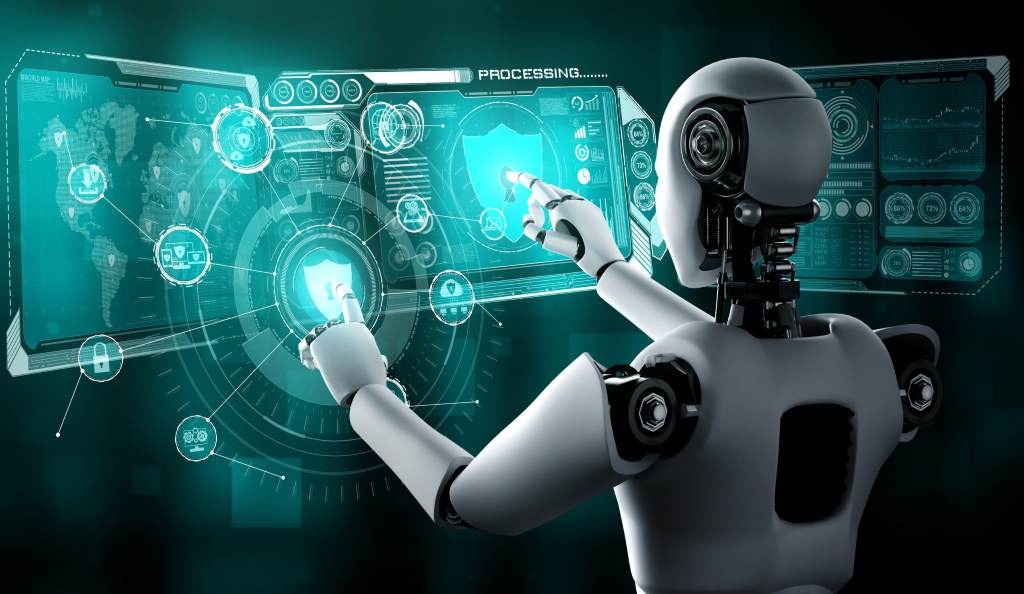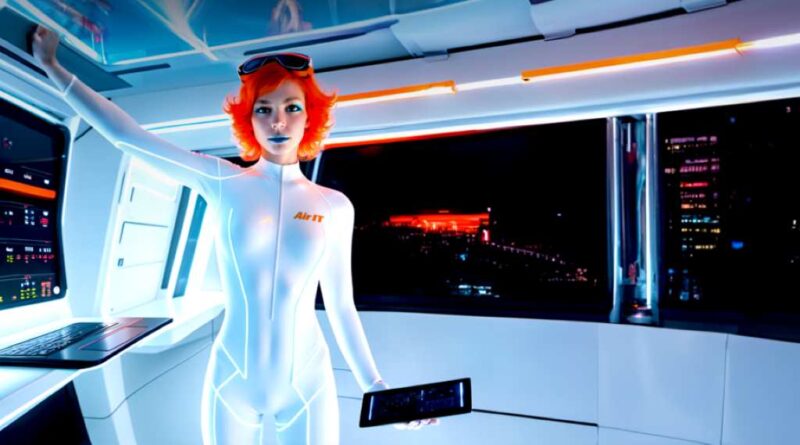Artificial intelligence (AI) has rapidly advanced from a sci-fi concept to a transformative force in our world. In the next decade, we can expect AI to become even more integrated into our lives, fundamentally changing the way we work, interact, and experience the world. Let’s dive into some key areas where AI is likely to make significant strides in the next ten years.
Deep Learning at the Forefront
Deep learning, inspired by the structure of the human brain, will continue to power advancements in AI. Imagine AI systems with vast artificial neural networks capable of learning from massive datasets and improving without being explicitly programmed. This will lead to AI that can understand and process information with a level of sophistication that would have seemed impossible just a short time ago.

Enhanced Natural Language Processing (NLP)
AI is already helping us break down language barriers and communicate more effectively. Imagine having real-time conversations with AI companions or virtual assistants that feel incredibly natural and human-like. Over the next decade, AI’s ability to understand and generate language with startling accuracy will open up new modes of interaction with technology– we might just have full-fledged virtual friends or eloquent AI copywriters.
Hyper-personalization
The era of one-size-fits-all is waning. AI will analyze our individual preferences, habits, and even health data to tailor experiences across multiple fields. Expect hyper-personalized recommendations for everything from entertainment choices and products to personalized educational programs and healthcare solutions. This AI-powered customization will cater to our unique needs and wants, making our lives easier and more efficient.
Related: Here Are Four CHATGPT Alternatives
AI-Human Collaboration
Rather than the doomsday scenario of AI replacing humans, the future is far more likely to involve enhanced partnerships between people and machines. AI will become a powerful tool, augmenting our capabilities and enabling new feats of creativity and problem-solving. Doctors might rely on diagnoses supported by AI algorithms, while designers collaborate with AI tools to create stunning visuals. AI will handle tedious or data-heavy tasks, freeing humans to focus on more strategic and creative work.
Democratization of AI
Currently, creating and deploying sophisticated AI models requires substantial technical expertise. One major shift in the next decade will be the increased accessibility of AI tools. User-friendly platforms and pre-trained models will empower businesses and individuals, even those without coding backgrounds, to harness the power of AI. Think of it as the AI equivalent of how website builders have simplified web development.
AI in Science and Innovation
From accelerating drug discovery to optimizing energy systems for climate change mitigation, AI stands to revolutionize multiple scientific fields. AI’s ability to analyze vast datasets, identify complex patterns, and generate creative solutions will fast-track innovation. Expect breakthroughs in areas such as disease diagnosis, material design, and sustainable technologies.
Ethical and Responsible AI
As AI grows more potent, addressing its potential biases, risks, and societal implications becomes paramount. Concerns about data privacy, algorithmic fairness, and transparency will increasingly be at the forefront of AI development. Stricter regulations, robust ethical frameworks, and a focus on explainable AI will be essential to ensure AI serves humanity responsibly and benefits all.
The Challenge of Data
The lifeblood of AI is data. As AI advances, so too will the need for vast, high-quality datasets to train AI models. This presents challenges on several fronts: from ensuring responsible data collection and anonymization to developing efficient methods for labeling and curating massive datasets.
AI in Unforeseen Domains
The beauty (and sometimes the challenge) with AI is its potential to surprise us. Beyond the areas we can anticipate, AI will likely be applied in completely disruptive ways over the next ten years. We might see AI compose poetry that touches our souls or generate movie scripts that rival human creativity. AI’s adaptability means its reach could extend into unexpected areas of our life.
Conclusion
The next decade will be transformative for Artificial Intelligence. While it’s impossible to predict every single detail of AI’s evolution, one thing is certain: AI will profoundly reshape our world. From empowering individuals to revolutionizing industries, AI holds immense potential to improve lives. However, to ensure a beneficial and equitable future, it’s critical to approach the development and use of AI with ethical considerations, an inclusive mindset, and a focus on collaboration.

